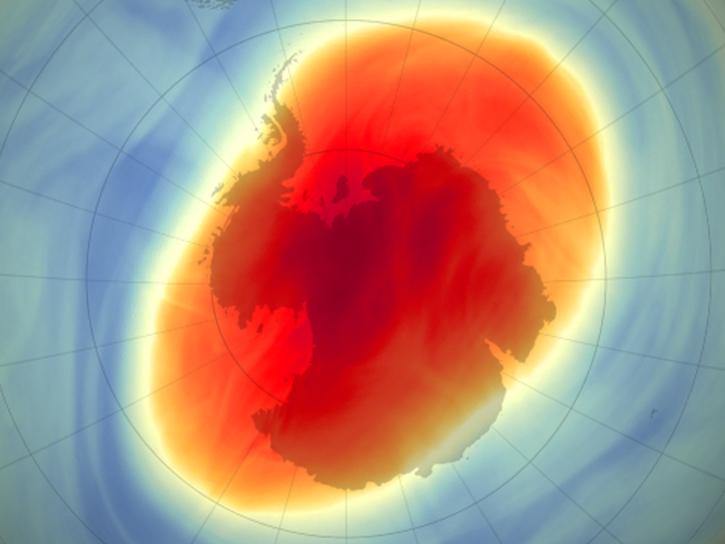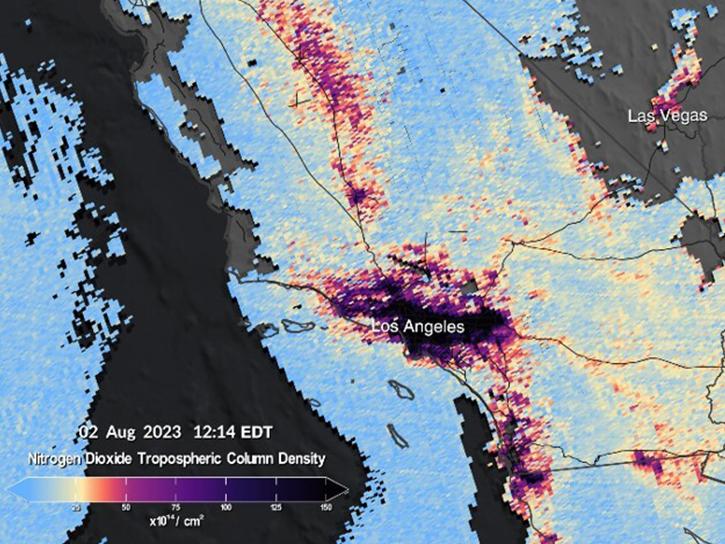Access a range of datasets and data tools to further your research into nitrogen oxides.
Nitrogen oxides are gases that can seriously affect human health and the environment. Nitrogen dioxide (NO2) is a pollutant, the primary sources of which are automobile exhaust, smoke from industry, and the burning of fossil fuels. It is also produced when nitric oxide (NO), another nitrogen oxide that forms during combustion, reacts with oxygen. If breathed in, NO2 can aggravate respiratory conditions such as asthma. Long-term exposure can lead to the development of asthma and potentially increase susceptibility to respiratory infections. NO2 reacts with other chemicals in the atmosphere, forming particulate matter and ozone, producing haze and acid rain, and contributing to nitrogen pollution in coastal waters.
Another important gas sometimes considered to be a nitrogen oxide is nitrous oxide (N2O), also known as "laughing gas." This powerful greenhouse gas is about 100 times more potent per pound than carbon dioxide (CO2) over 100 years. It is a stratospheric-ozone-depleting substance. N2O is produced almost entirely at the Earth's surface, about 70% from biological processes (natural decay process of land and ocean) and the rest from human activities (e.g. agricultural fertilization and fossil-fuel burning). Since the 1950s, levels of N2O have increased about 0.3% per year.
NASA’s Earth-observing instruments collect data on concentrations of greenhouse gases in the atmosphere, including nitrogen oxides. These datasets can be used to track historical and near real-time global and regional emissions. NASA also curates socioeconomic data to provide a full picture of how nitrogen oxide levels affect the health of people and communities.
Learn How to Use Nitrogen Oxides Data



Join Our Community of NASA Data Users
While NASA data are openly available without restriction, an Earthdata Login is required to download data and to use some tools with full functionality.
Learn About the Benefits of Earthdata LoginFrequently Asked Questions
Earthdata Forum
Our online forum provides a space for users to browse thousands of FAQs about research needs, data, and data applications. You can also submit new questions for our experts to answer.
Submit Questions to Earthdata Forumand View Expert Responses